How to set up SSO for Proton Pass using Google
Our Proton Pass Professional plan supports single sign-on (SSO). SSO allows you to securely access multiple web services and SaaS applications using one set of login credentials. In this article, we look at how to set up SSO on Proton Pass using Google as your identity provider (IdP).
How to set up SSO for Proton Pass using Microsoft Entra ID
How to set up SCIM for Proton Pass using Microsoft Entra ID
Proton Pass supports SSO using Security Assertion Markup Language(nova janela) (SAML) 2.0, an XML(nova janela)-based open standard used to transferr authentication data verifying your identity between an IdP and a SaaS application.
Before you start, you’ll need the following:
- A Proton Pass Professional account with admin privileges.
- A Google Workspace(nova janela) admin account.
Once you have a Google Account, you must configure it for Proton Pass. You can then configure SAML on your Proton Pass account.
Here’s what we’ll cover next:
- How to configure Proton Pass on Google
- How to configure SAML SSO on your Proton Pass account
- How to add SSO users to Google
- How to use SSO to sign in to Proton Pass
- How to manage SSO for Proton Pass
How to configure Proton Pass on Google
1. Log in to your Google Account(nova janela) and go to Apps → Web and mobile apps → Add app → Add custom SAML app.
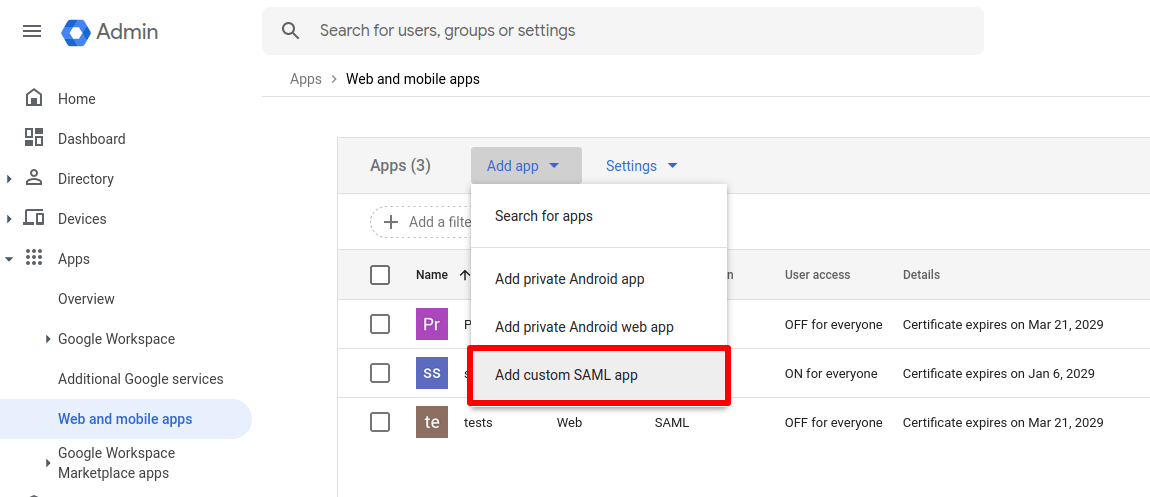
2. Give your app a name and a description (optional) and upload an app icon for it (also optional). Click Continue when you’re ready.
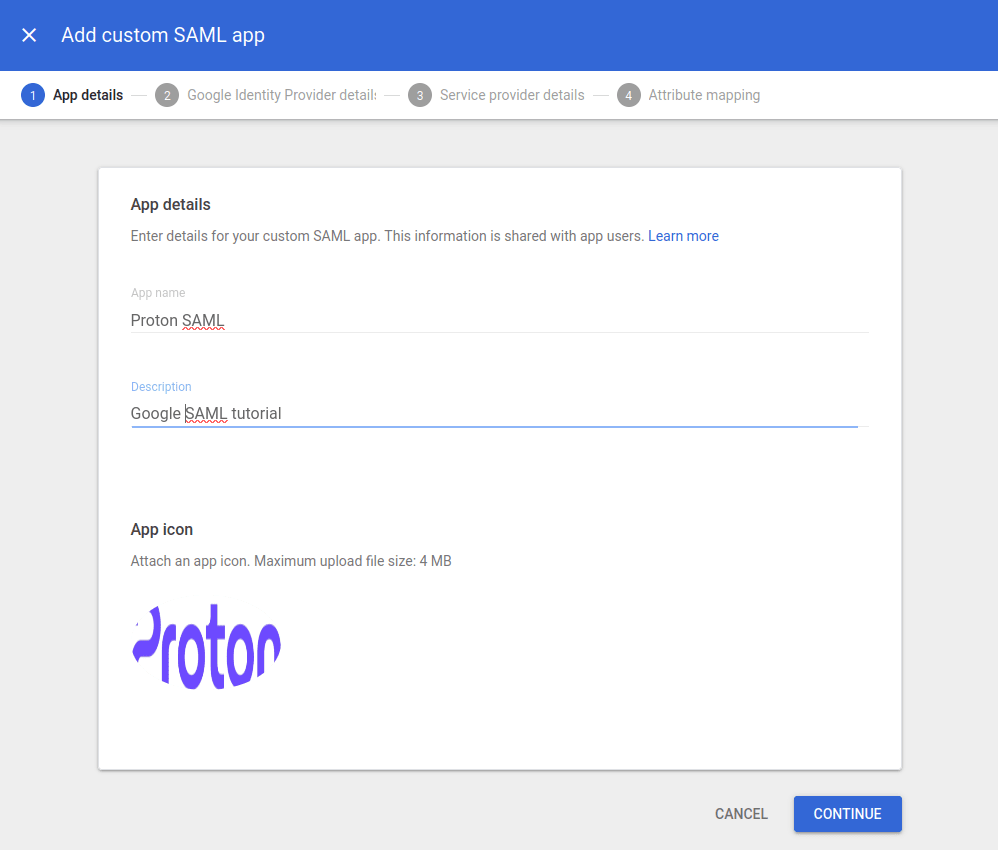
3. Click Download metadata. This will download an XML file that you’ll upload to your Proton Pass admin panel later in the setup process (see step 5(nova janela) under How to configure SAML SSO on your Proton Pass account).
Click Continue when you’re ready.
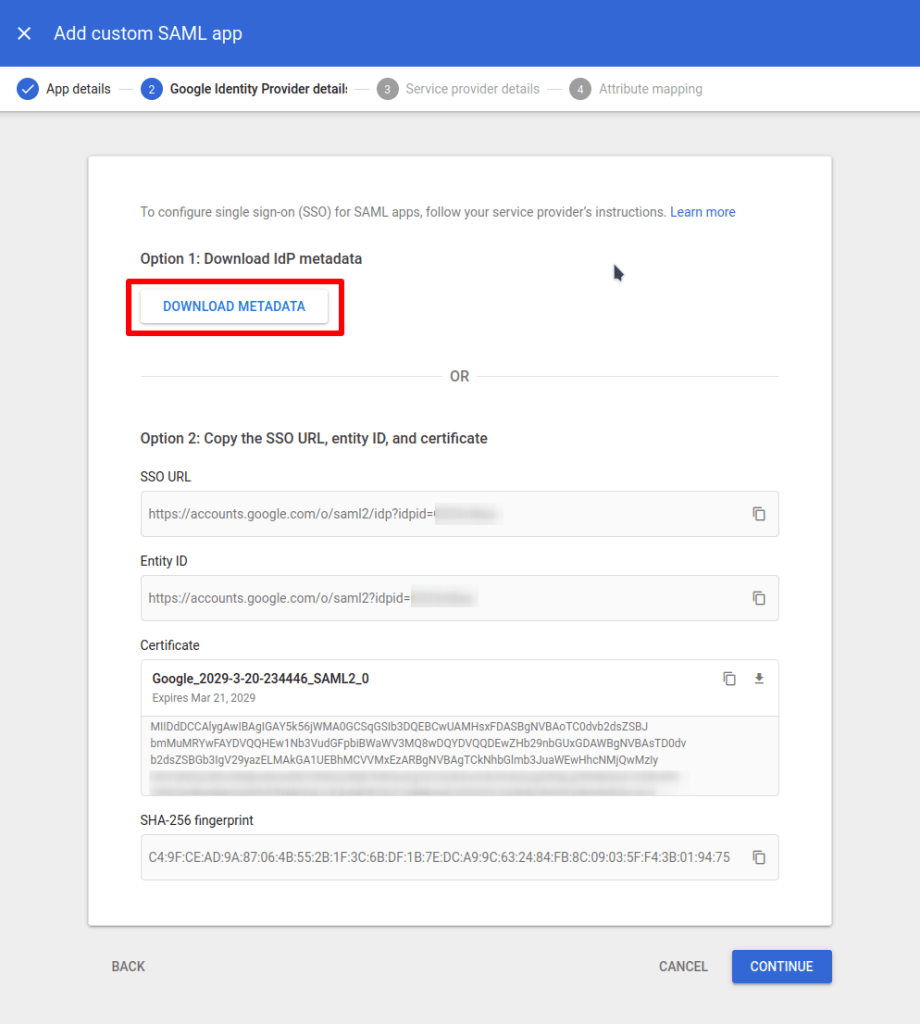
4. Enter the following information:
- ACS URL: https://sso.proton.me/auth/saml(nova janela)
- Audience URI (SP Entity ID): https://sso.proton.me/sp(nova janela)
- Signed response: selected
- Name ID format: EMAIL
Click Continue when you’re ready.

5. On the Attribute mapping screen, you can configure attributes and group membership options (both optional). If you’re unsure about these, just click Finish.
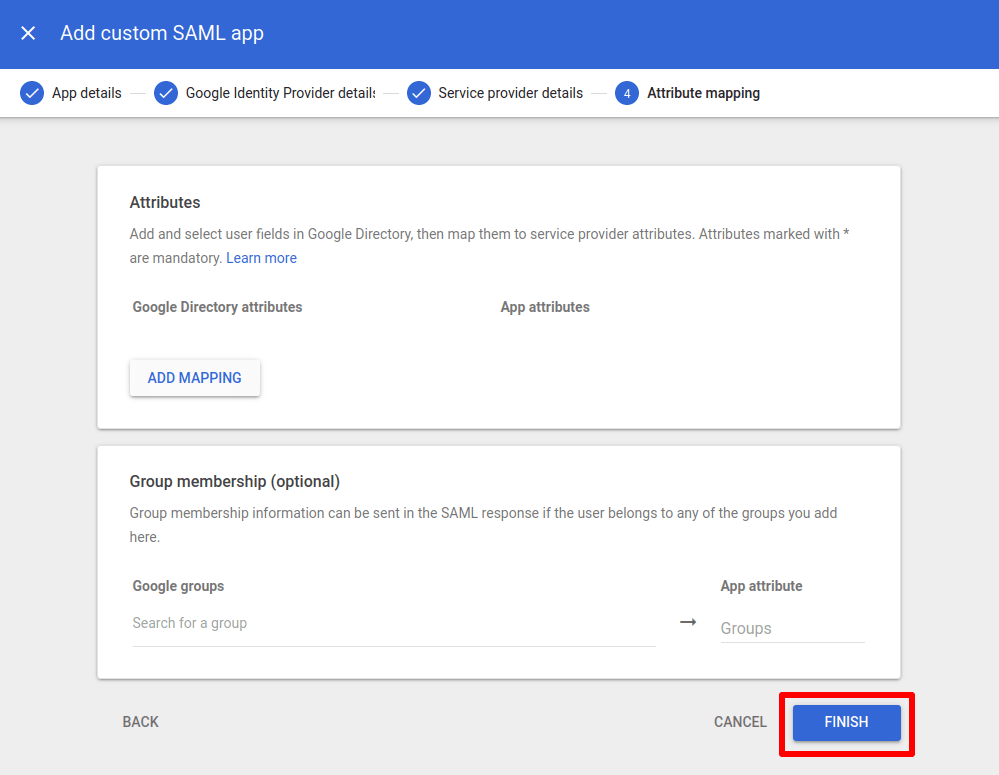
6. You’ve now created a SAML integration for Proton Pass. However, to use it, you must turn it ON for everyone. To do this, click OFF for everyone…
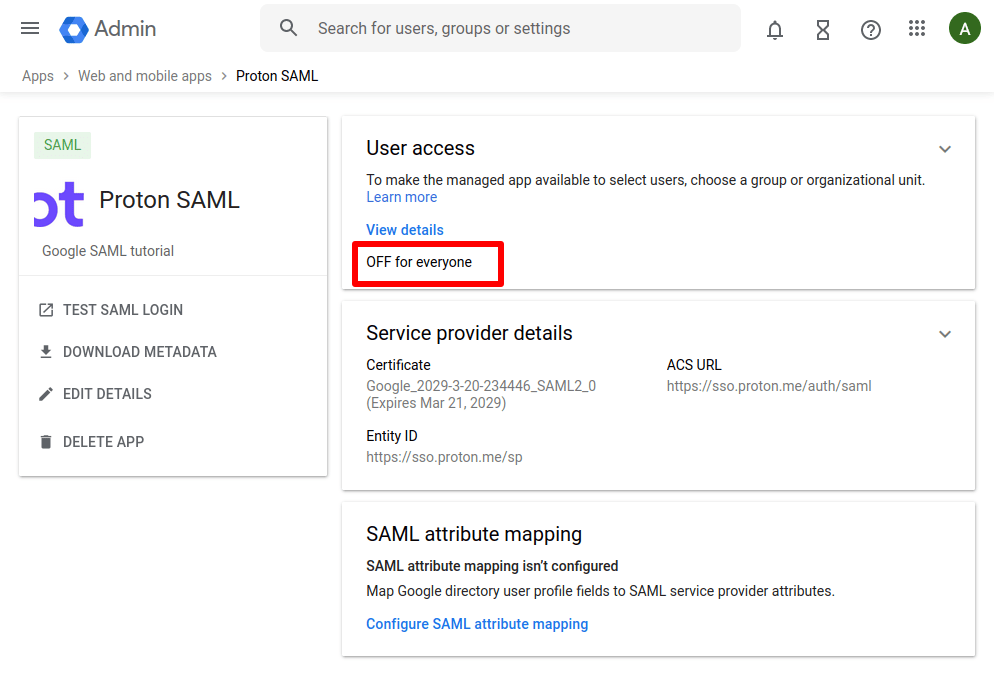
Then select ON for everyone and click SAVE.
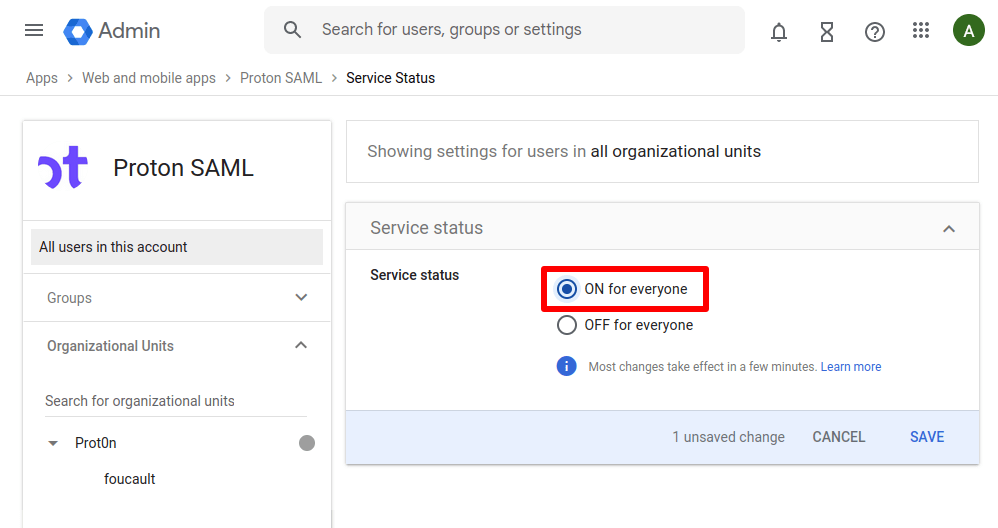
(To turn on your SAML integration at a later time, go to Apps → Web and mobile apps → click on the app.)
How to configure SAML SSO on your Proton Pass account
1. Log in to your Proton Pass admin panel and go to ⚙ → Single sign-on → SAML authentication → Configure SAML.

2. Add your organization’s domain name and click Add domain.
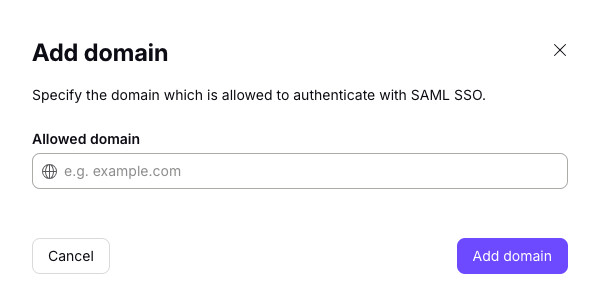
3. Verify the domain for your identity provider. To do this, log in to your domain provider’s web portal and enter the DNS TXT record displayed on this screen.
Return to your Proton Pass account(nova janela) and click Continue once you’ve done this.
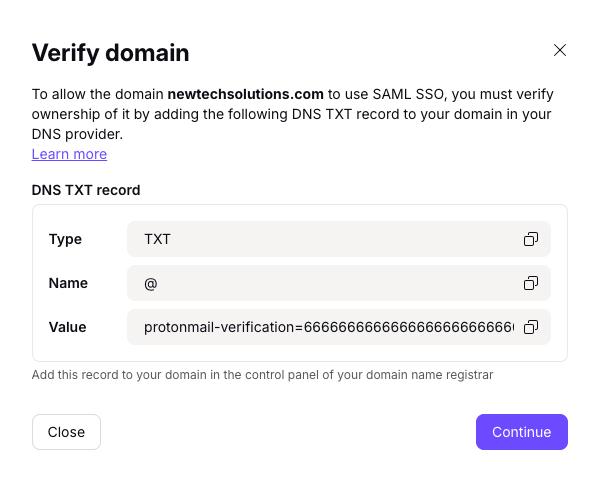
4. A screen will show you the endpoints needed by Google. However, we’ve already entered these (see step 4 (nova janela)of Configure Proton Pass on Google), so just click Continue.
5. Import the metadata file you downloaded from Google in step 3 of Configure Proton Pass on Google. To do this, select XML and either drag the XML file to the field provided or click Select file and locate the file using your system’s default file manager. Click Done when you’re ready.

SSO using Google should now be configured on your Proton Pass account.

How to use SSO to sign in to Proton Pass
Once your new SSO account is configured on Google, go to your Proton Pass account.
1. Click Sign in with SSO on any Proton Pass login screen.

2. Enter your email address (as configured on Google by your administrator) and click Sign in.

3. Enter your Google SSO username and password (which will be supplied by your manager, or see steps 9 and 10 in the How to add SSO users to Google section above), and click Sign in.
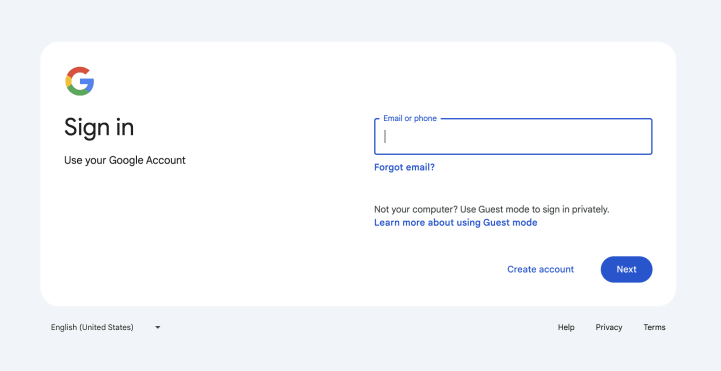
How to manage SSO users in Proton Pass
Your organization’s users can now log in to Proton Pass apps using their IdP login. To view which users have signed into Pass, log in to your Proton Pass account and go to Organization → All users.
Note: SSO users will only appear here after they have signed in at least once.
In the Users section in the Proton Pass admin panel, you can manage individual users using the dropdown menu in the Edit column of the user you wish to manage SSO access for.
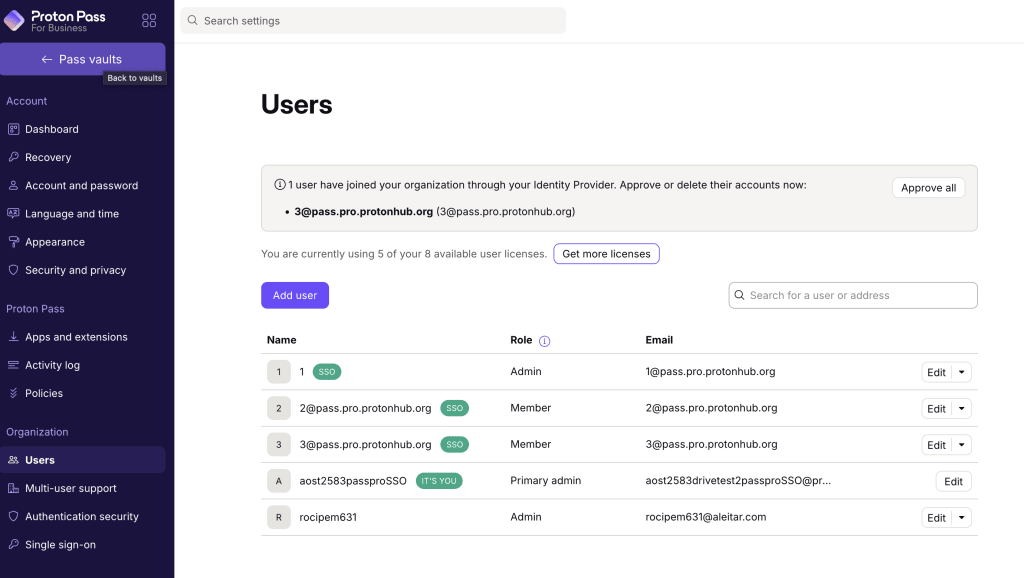
To turn off SSO for your whole organization, go to Single sign-on → Remove single sign-on → Stop using single sign-on.
Please note that doing this deletes all configurations and users associated with your domain. We therefore strongly recommend against turning off SSO for your whole organization.
